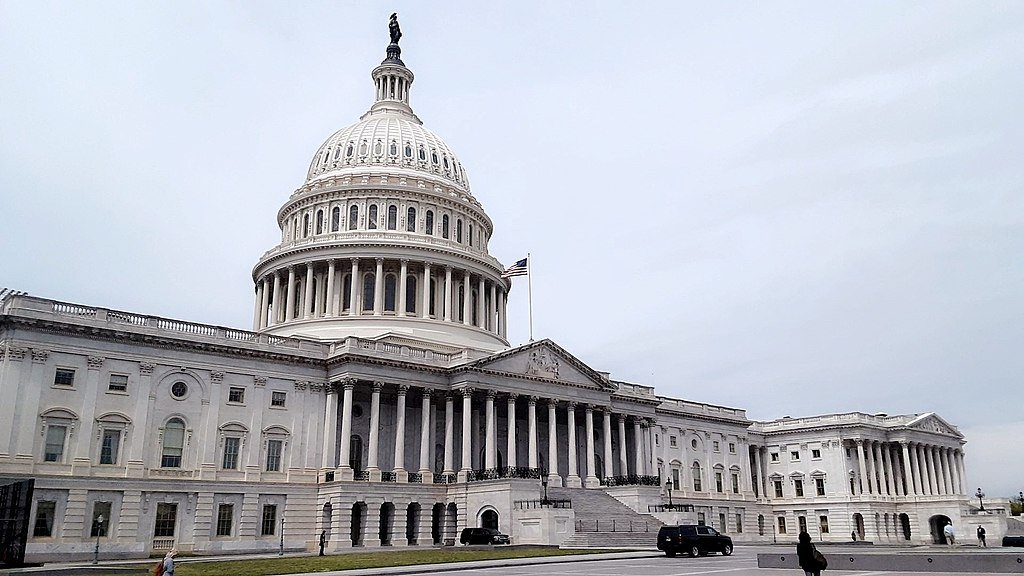Draining the Valley Instead of the Swamp
Yesterday, most of the U.S.’s biggest technology firms joined the legal fight in the 9th Circuit over the President’s immigration ban, filing a brief arguing that the ban imposes “significant harm” to U.S. businesses. Over ninety firms signed the brief, including Airbnb, Apple, Box, Citrix, Dropbox, eBay, Facebook, Google, Intel, Lyft, Microsoft, Netflix, PayPal, Snap, Twitter, and Uber, and many more.
Published by The Lawfare Institute
in Cooperation With

Yesterday, most of the U.S.’s biggest technology firms joined the legal fight in the 9th Circuit over the President’s immigration ban, filing a brief arguing that the ban imposes “significant harm” to U.S. businesses. Over ninety firms signed the brief, including Airbnb, Apple, Box, Citrix, Dropbox, eBay, Facebook, Google, Intel, Lyft, Microsoft, Netflix, PayPal, Snap, Twitter, and Uber, and many more.
The brief is notable for a few things. First, it makes a few weak legal arguments but focuses mostly on the policy and economic arguments against the immigration ban. Second, the brief is notable in that it was filed at all. American tech firms have been in a delicate balancing act, attempting to assuage their customers’ concerns on the one hand without going so far as to “poke the bear” on the other; the brief is a sign that the balance has tilted. President Trump has tried very hard to make his White House both (1) friendly to American technology companies, and (2) intolerantly isolationist. But as the tech sector’s brief highlights, these are increasingly incompatible goals.
Isolationism is Bad for Tech In Particular
The brief makes a big deal out of the fact that we live in a globalized world (“The marketplace for today’s businesses is global.”) This is hardly news. One need not be a regular at Davos to recognize that the tech sector, more than others, depends on access to global markets. This is so for a number of reasons. First, isolationism makes it hard to attract top talent. Internet firms are constantly searching for the best talent worldwide, and that often means hiring immigrants. President Obama was the regular recipient of calls from the tech community to reform draconian immigration policies that made work visas unusually hard to get. Facebook founder Mark Zuckerberg even helped found a lobbying group, FWD.US, which filed an amicus brief in the Supreme Court in connection with the litigation over Obama’s deferred action policies.
Of course, part of the challenge is that isolationist immigration policies make it hard to actually hire people who already want to come to the U.S. But just as importantly, even if you can manage to jump through all of the bureaucratic hoops, policies like this make it hard to get people to want to come. If you had a choice—as you likely do if you are being recruited by Google—why would you choose to come to the U.S., if this is how we treat even those immigrants who do everything by the book? As Matt Levine over at Bloomberg put it:
One upshot of Trump's executive order is that United States lawful permanent residents, who have jumped through years of hoops to comply with the intricate immigration rules enshrined in U.S. law, are no longer protected by that law. They can be deported at the whim of the President, or his advisers, or a Border Patrol agent.
Matt’s point is that this is “bad for business.”
Isolationism is Particularly Bad for American Internet Firms
While the brief makes the business case against an immigration ban in a globalized world, it does not fully explain how isolationism hurts American internet firms in particular.
What the brief leaves out is the simple fact that American efforts to exclude are inconsistent with the message of American internet firms—Facebook, remember, wants to “connect the world”—and the fact that American firms dominate the global internet.
The U.S. makes up a tiny percentage of total internet users (around eight percent), yet in many, many countries, at least half of the most popular websites are managed by American firms. In France and India, the figure is eight of the ten most popular websites. In Brazil, it is six of ten. In Nigeria, it is five of ten. Website statistics like these do not tell the whole story, of course, but they are corroborated by other evidence. One estimate suggests that only 13% of Facebook’s users are in the U.S.
If you want evidence of how isolationist policies can harm internet firms, ask yourself how many Chinese apps are running on phones outside of China. China is a huge country with a massive tech sector, yet so far its global reach is largely limited to hardware (much of which is made on behalf of foreign firms like Apple or Samsung). One effect of China’s isolationist internet policies—some of which are technological and some of which are jurisdictional—is to effectively cleave China from much of the global market for internet services.
Perhaps you look at China and draw the opposite conclusion: just look at that their hardware firms, which are thriving despite strict government oversight! Good point. But Foxconn could never survive under Trump-style isolationism. China’s hardware sector thrives because labor costs are low, and while China is isolationist with regard to internet content, it is decidedly not isolationist with regard to trade of manufactured goods. (You probably don’t have a Chinese app on your phone, but your phone probably was made in China.) So American firms that make most of their money-making hardware—firms like Tesla and Apple—also depend on easy access to a global market.
The Tech Industry’s Uneven Response
Given the above, it is somewhat surprising that it took this long for the tech industry to react to Trump’s policies. Don’t get me wrong—plenty of the employees at top firms have been vocal in their opposition to Trump’s policies, but this could simply suggest that tech firms employ liberals who dislike Trump. It was hardly industry-level recognition of the threat posed by Trump’s proposed policies. And while some tech firms have issued statements ranging from furrowed brows to hair-on-fire outrage, others in the tech sector have not done much to distance themselves from Trump. Elon Musk blandly tweeted that the President’s Executive Order is, like, probably not great:
The blanket entry ban on citizens from certain primarily Muslim countries is not the best way to address the country’s challenges
— Elon Musk (@elonmusk) January 29, 2017
But one wonders how much of this concern is mere posturing to reassure customers in the U.S., rather than recognition of a long-term threat to the industry. For example, Uber was caught flat footed this weekend by a #deleteUber campaign after the firm appeared to drop surge pricing in order to bypass the taxi boycott at JFK—a campaign that quickly vaulted Lyft to the top of the most-downloaded apps list this weekend. Uber, scrambling, pledged to do nice things for immigrants—the behavior of a firm that listens to its customers, but does not see the immigration ban as bad for the firm independent of public outrage.
Perhaps the industry’s response has so far been tamer than it might otherwise be because the stock market rally has people feeling pretty good. Or perhaps tech leaders are looking hard for silver linings.
Let’s consider the possible silver linings for the tech sector of a Trump presidency. It is true, in theory, that not all of the Trump administration’s stances are bad for the entire sector. For example, if the Trump administration makes good on its pledge to invest in infrastructure, this could spur innovation in certain fields—such as robotics and autonomous vehicles. But to hold onto the hope that this infrastructure plan (if it can even be called a plan) will (a) become a reality and (b) be such a boon for the industry that it merits ignoring the costs outlined above—that is really to grasp at straws.
Perhaps, then, some Silicon Valley leaders are thinking that Trump, whatever the merits of his policies, will radically change the status quo, and that will create opportunities to innovate or, in Valley lingo, to “disrupt.” And hey: disruption is good! One problem with this view is that it is far from clear that disruption is in fact good for the tech sector as a whole, and it is especially not clear that disruption is good for the more established firms like Microsoft, Google, and Apple—that is to say, the firms that are established enough to have gone public and now be a part of your retirement portfolio.
The only people that I can imagine would take such a view about widespread disruption are those poised to take advantage of it. That is to say, the nimble and capital-rich—folks like billionaire Trump advisor Peter Thiel. As Thiel told Maureen Dowd:
“Everyone says Trump is going to change everything way too much …Well, maybe Trump is going to change everything way too little. That seems like the much more plausible risk to me.”
That statement has not aged well.
The bigger problem with the disruption-brings-opportunity thesis is that it seemingly justifies anything – including self-destruction. Here, the target of the disruption is the very mechanism by which we ensure that the United States is able to attract talent, disseminate its technology, and engage in cross-border collaboration and innovation. It would be perverse to welcome the decimation of U.S. norms of inclusiveness and connectedness as a form of innovation. Indeed, of all the areas where the U.S. actually needs to innovate, one would think that the last place is its norms of inclusiveness and connectedness. We can imagine innovators coming up with creative ways to narrow the delta between our current practices and our strongest principles in a number of areas – such as in our elections, our classrooms, and our healthcare system, to name just a few. But to revisit the very principles themselves—principles that created an environment where refugees like Sergey Brin could find asylum, an education, and the capital to create the world’s most innovative technology firms?
I can’t think of a better way to drain the Valley.




